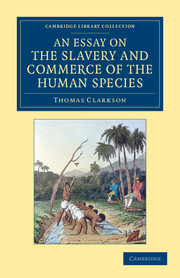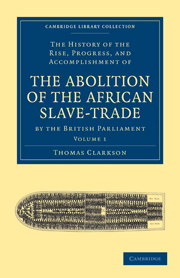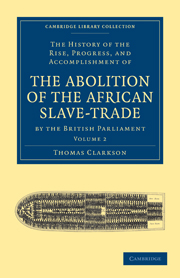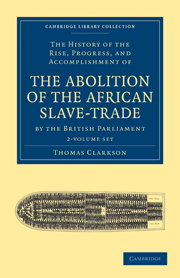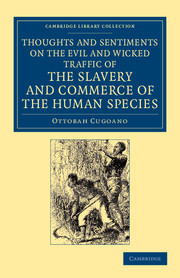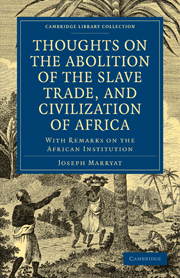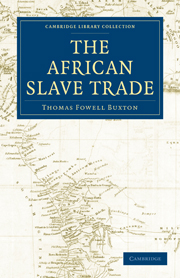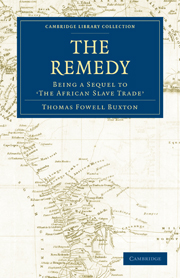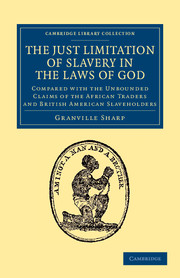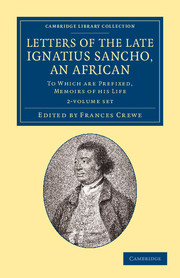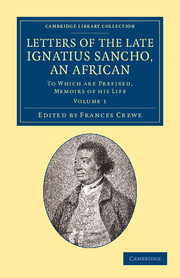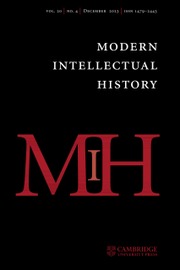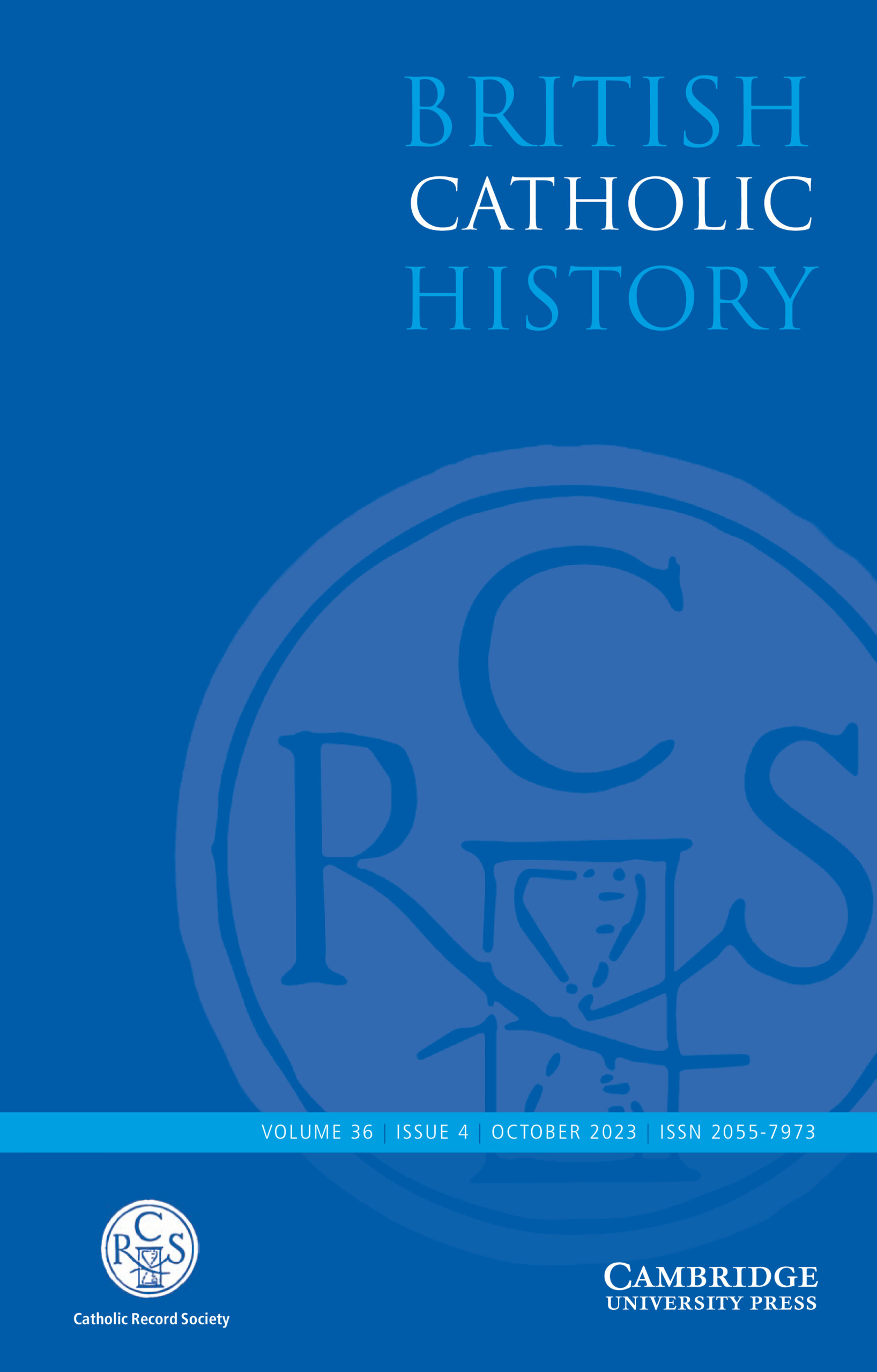An Essay on the Slavery and Commerce of the Human Species
Particularly the African, Translated from a Latin Dissertation, Which Was Honoured with the First Prize in the University of Cambridge, for the Year 1785
£30.99
Part of Cambridge Library Collection - Slavery and Abolition
- Authors:
- Thomas Clarkson
- John Newton
- Date Published: June 2013
- availability: Available
- format: Paperback
- isbn: 9781108060141
£
30.99
Paperback
Looking for an inspection copy?
This title is not currently available on inspection
-
This 1786 publication is a translation of a prizewinning Latin essay written by Thomas Clarkson (1760–1846) at Cambridge the previous year. Clarkson's deep research into the Atlantic slave trade instilled in him a sense of duty, inspiring him to devote his life to abolitionism. The publication of the essay introduced Clarkson to like-minded campaigners, notably William Wilberforce (1759–1833) and Granville Sharpe (1735–1813), with whom he helped to establish in 1787 the pioneering Society for Effecting the Abolition of the Slave Trade. Thoughts on the African Slave Trade (1788) by the sailor, slave trader and Anglican clergyman John Newton (1725–1807) is also reissued in this volume. Published thirty-four years after Newton's retirement from the slave trade, this pamphlet apologises for his 'too late' conversion to the abolitionist movement and describes the horrific conditions aboard slave ships during the Middle Passage.
Customer reviews
Not yet reviewed
Be the first to review
Review was not posted due to profanity
×Product details
- Date Published: June 2013
- format: Paperback
- isbn: 9781108060141
- length: 336 pages
- dimensions: 216 x 140 x 19 mm
- weight: 0.43kg
- availability: Available
Table of Contents
Preface
Part I. The History of Slavery:
1. Introduction
2. The first class of involuntary slaves
3. The second class from piracy
4. Their personal treatment
5. The causes of such treatment among the ancients in general
6. The ancient slave-trade
7. The decline of this commerce and slavery in Europe
8. Their revival in Africa
Part II. The African Commerce or Slave-Trade:
1. The history of mankind
2. An account of the first governments
3. Liberty a natural right
4. Mankind cannot be considered as property
5. Division of the commerce into two parts
6. Their right with respect to convicts
7. Their right with respects to prisoners of war
8. Additional remarks on the two orders that were first mentioned
9. The right of the purchasers examined
Part III. The Slavery of the Africans in the European Colonies:
1. Imaginary scene in Africa
2. Their treatment on board
3. The condition of their posterity in the colonies
4. The seasoning in the colonies
5. The contents of the two preceding chapters denied by the purchasers
6. Three arguments refuted
7. The argument, that the Africans are an inferior link of the chain of nature, refuted
8. The argument, that the Africans are an inferior link of the chain of nature, refuted (cont.)
9. Other arguments of the purchasers examined
10. The right of the purchasers over their slaves refuted
11. Dreadful arguments against this commerce and slavery
John Newton's thoughts upon the African slave-trade.
Sorry, this resource is locked
Please register or sign in to request access. If you are having problems accessing these resources please email [email protected]
Register Sign in» Proceed
You are now leaving the Cambridge University Press website. Your eBook purchase and download will be completed by our partner www.ebooks.com. Please see the permission section of the www.ebooks.com catalogue page for details of the print & copy limits on our eBooks.
Continue ×Are you sure you want to delete your account?
This cannot be undone.
Thank you for your feedback which will help us improve our service.
If you requested a response, we will make sure to get back to you shortly.
×
